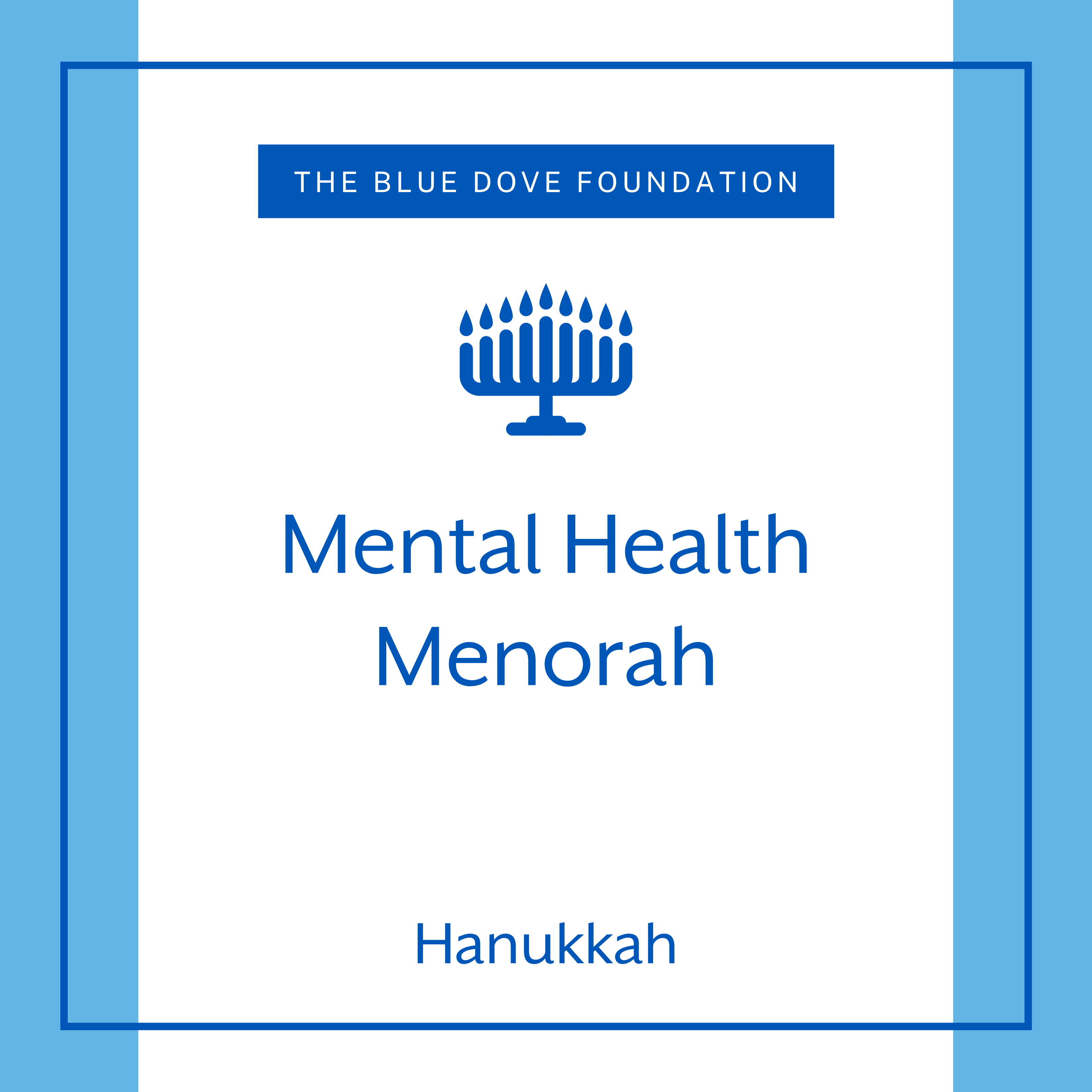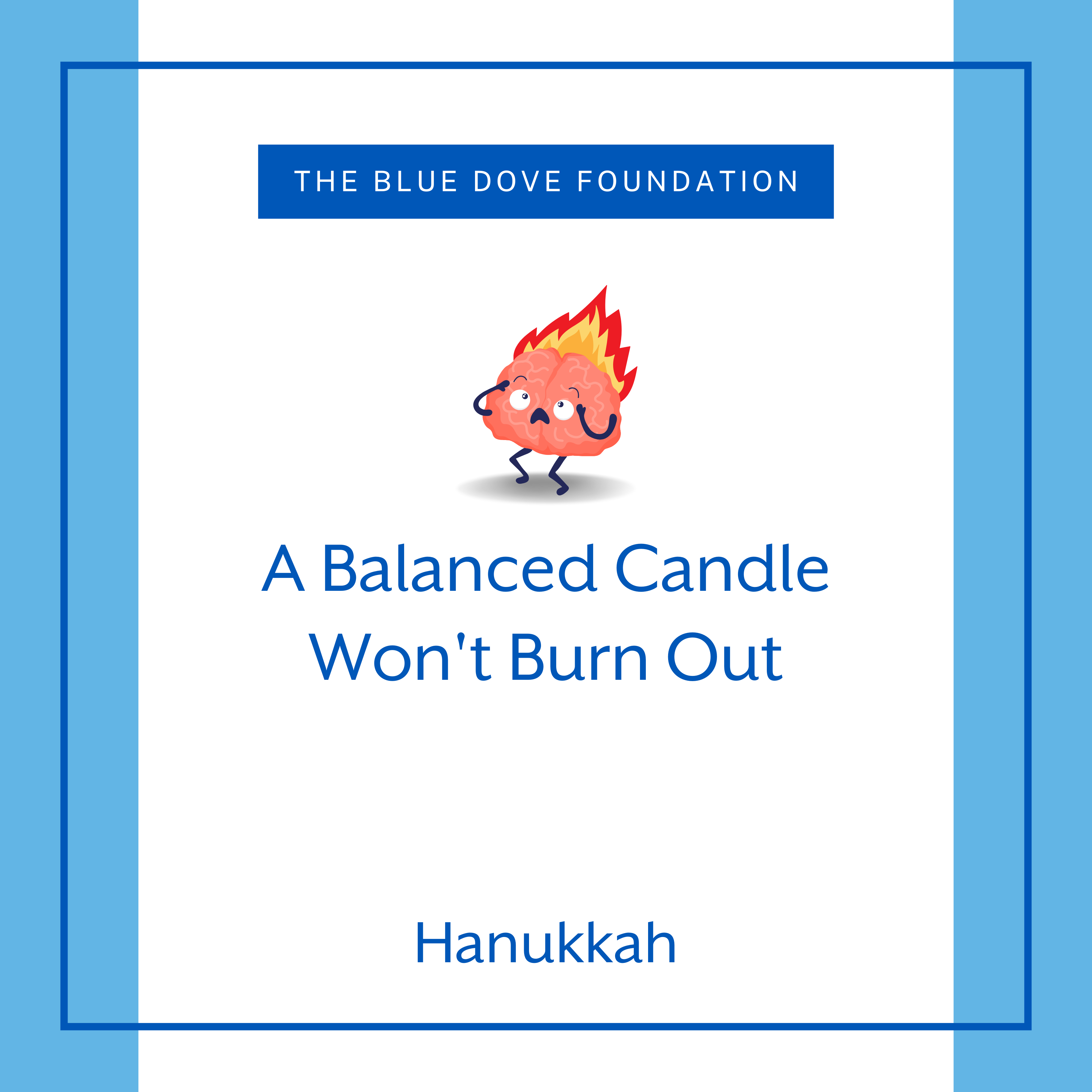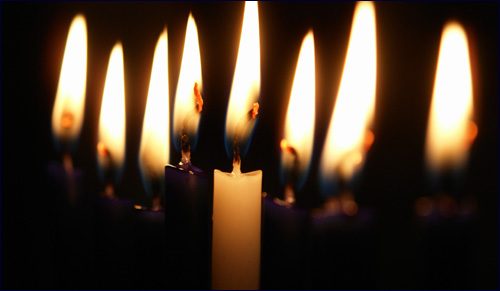A wonderful lesson about Hanukkah and mental health from Rabbi Peter Berg of "The Temple" in Atlanta.
Resource Category: Hanukkah
When constructing the Hanukkah ritual, the sages of the Talmud entertain two possible methods of lighting a Menorah. One is ro begin Hanukkah by lighting all eight candles on the first night and subsequently removing one candle from the Menorah nightly. The other option — the one we practice — is to add a candle each night over the course of the holiday. On the surface, this debate might seem insignificant, but it actually cuts to the heart of the role Hanukkah plays in our lives and the mission we are called upon to realize.
At the darkest point of the year, the light of Hanukkah is there when we need it most, bringing a sense of warmth and comfort to an otherwise cold and worrisome season. But if that light were to suddenly diminish, our comfort would subside along with it. So we begin the holiday by lighting one candle and adding an additional one each night rather than starting with eight candles and slowly removing them. Because on Hanukkah we are tasked with adding light to the world, not taking it away.
Right now, our world feels darker than ever, but “The proper response, as Hanukkah teaches, is not to curse the darkness but to light a candle.” (Irving Greenberg). We hope our Hanukkah and mental health resources can help brighten up your life this Hanukkah —and help create a brighter world for everyone.
Recap of our signature program, #QuietingTheSilence.
Explore how the story of Hanukkah helps inspire resilience in the Jewish people, and what we can do to infuse our lives with that message of resilience.

The Shamash of Hanukkah is the exemplar of Jewish leadership. It never stands alone and its only goal is to light the flames of others. Unlock your inner Shamash.

Hanukkah, the holiday of lights, is one of the warmest times of the year, meant to be spent immersed in the love of friends and family. But for many caregivers, preparation for this holiday and all of its material expectations can become overwhelming and stressful. Whether they’re parents, teachers or healthcare providers, they can feel overextended to a dangerous degree. This feeling is only exacerbated by the fact that so many of us are culturally inclined to not see our own well-being and ability to function as a priority. Rather, the modern individual is pressured to “achieve” and “hustle,” leaving very little room for rest. This perspective is disastrous to our mental health and inevitably leads to burnout.

An excerpt from Lucie Waldman’s book, The Jots of Becoming: A journey of hope and recovery. Available on Amazon in Kindle and print editions. This was written in anticipation of Chanukah, but its themes can apply more universally in recovery. The holidays, no matter what religion, are an extraordinarily difficult time for me and for most people with Eating Disorders because it often comes with changes in scheduling in treatment, different foods, and seeing different family members. All in all, it’s a lot of change.

On Hanukkah, we light the eight candles of the Menorah. The 9th candle is the Shamash, – a helper candle used to light the other candles. We know Hanukah is the festival of lights, and the opposite of light is darkness. For thousands of years, Jewish people have evolved through periods of light and darkness. We can all relate to what this may feel like. Today, we hope that through education, dialogue, and storytelling, along with the incredible power of our community, we continue to see the miracles of light and hope.

When we light the Hanukkah menorah, it is a testimony to strengthening our faith and our connection with G-d. Hanukkah is the time to rekindle the faith within ourselves that we have the strength to fight our battles and support others in their battles. May this Hanukkah be a season of blessings and miracles.

As the Jewish people commemorate the miraculous victory of the poorly armed Maccabee army, we as therapists are acutely aware of a different uphill battle being fought daily – recovery from addiction – and the modern-day miracles being uncovered throughout the process. Here are three lessons we have gleaned from work with those in recovery from addiction that have helped inspire a deeper Hanukkah experience.

During Hanukkah we celebrate miracles. The miracle of a few inexperienced Maccabees defeating a huge, powerful army. The miracle of one small jar of pure oil lasting for eight days instead of one. The miracle of the survival of the Jewish people for thousands of years despite endless challenges and obstacles. These miracles also represent a choice. A choice that Mattisyahu made when he announced, “We will fight!” A choice that the Jews made when they searched through the Temple ruins and said, “We will create light.” And a choice made by every Jew: We will go on.

